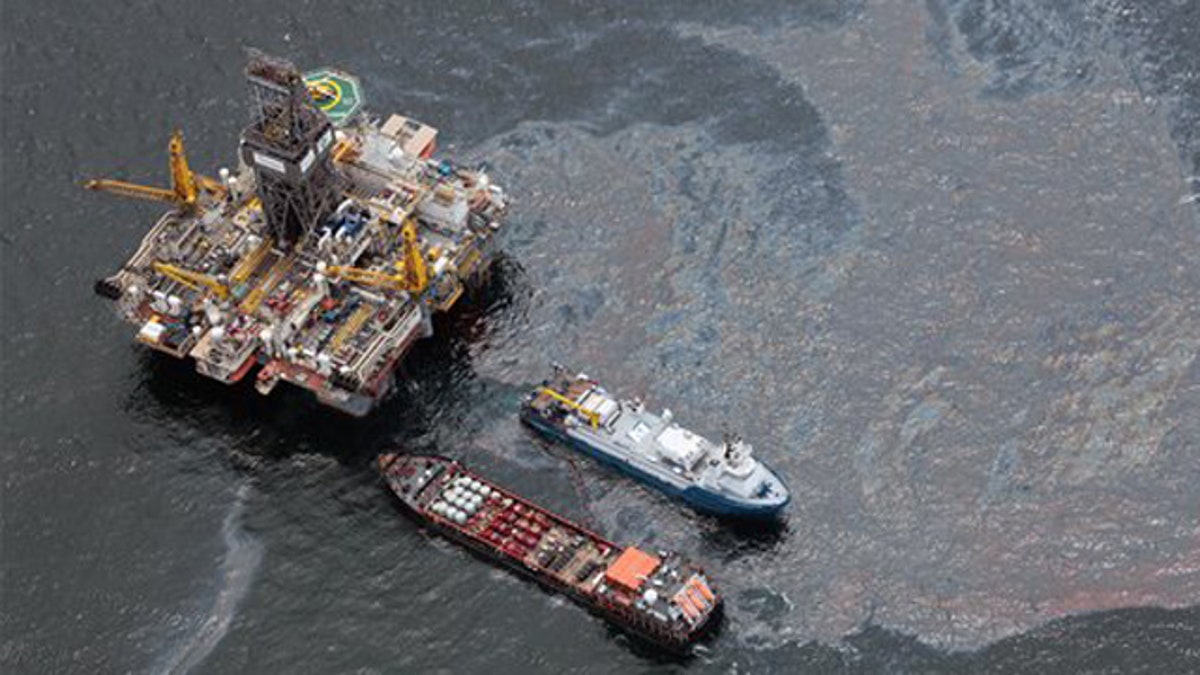
July 16, 2010: Workboats operate near the Transocean Development Drilling Rig II at the site of the Deepwater Horizon incident in the Gulf of Mexico. The wellhead has been capped and BP is continuing to test the integrity of the well before resuming production. (AP)
NEW ORLEANS — Bob Dudley, BP's lead executive in the Gulf of Mexico, spotted his U.S. government counterpart, retired Adm. Thad Allen, at the New Orleans hotel where both were staying earlier this month. Wanting to say good night after a long day, Dudley instead got fresh orders.
Adm. Allen said the government wanted BP to pay for community representatives in states affected by the oil-well blowout. "What does that mean?" Dudley asked. "I'm reluctant to agree without understanding what you are asking us to do." On Tuesday, the government ordered BP to set up such teams, which are designed to handle local concerns.
Another day, another directive. The Obama administration now is controlling BP's checkbook and resources in the Gulf as the two sides respond to the disaster, from use of oil-busting dispersants to the language of announcements.
BP managers say they frequently hear that "Potus has ordered" such and such, "Potus" being Washington shorthand for "president of the United States." A few weeks ago, BP's coordinator of oil-containment booms got a call from an official flying on Air Force One about where to send 80,000 feet of the barriers.
On a smaller scale, BP just received a $75,000 non-itemized bill for a one-day visit by Vice President Joe Biden to the New Orleans crisis center.
"We effectively work for the government here," BP's Dudley says.
When the well first blew out, the administration largely left the job of responding to BP. Then it tried partnering, while still leaving the British company in the lead. Now, facing public criticism, the White House has tightened its grip over BP's spill response.
The White House believes its actions have forced BP to deploy more resources in the fight. At the same time, some at BP say the government's hand has been heavy at times, complicating their efforts.

